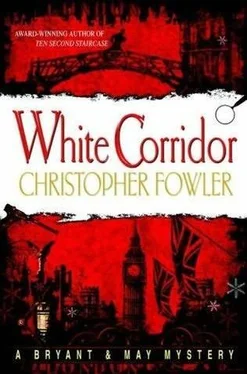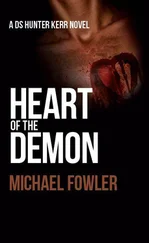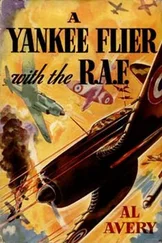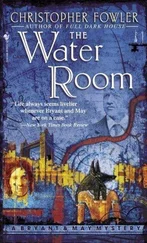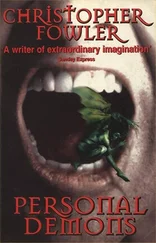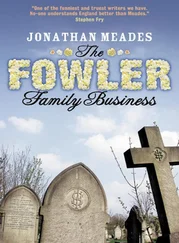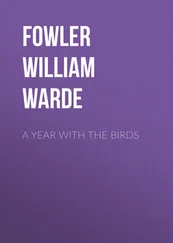Except that it wasn’t empty.
The two detectives were exactly where they usually were, in place behind their respective leather-topped desks. Admittedly, their suits were a little crumpled, their ties slightly askew, and they both looked as though they had been caught doing something mischievous, but they were as presentably arranged as they were ever likely to be for a meeting with royalty.
They had entered via the emergency exit from the tube station. Kasavian was lost for words. His mouth opened, then closed again. He stared back at Faraday as thunderclouds extinguished the light in his amber eyes.
John May rose from his chair with a creak and stood respectfully at attention. Arthur Bryant followed suit, coming around from behind his desk, grinning with his big white false teeth as he stuck out both hands and clasped hers, shaking her arm vigorously. The Princess looked faintly alarmed, and glanced back for help.
“Most fabulously pleasurable to meet you, your highly royal ladyshipness,” he enthused. “If you would care to step into our humble abode, perhaps we might be permitted to reveal to you some of the extraordinary secrets of our mysterious profession. Don’t be scared, we’re not mad or anything.” And with that he kicked the door shut, stranding Rosemary Armstrong, Faraday, Kasavian, Land and everyone else out in the corridor.
They looked at one another in confusion, then watched the closed door, waiting for it to open again. When nothing happened, they coughed politely in their fists and waited in silence like party guests queueing for the toilet.
After four minutes had passed, Rosemary Armstrong ostentatiously checked her watch. “The Princess has an incredibly tight schedule,” she told Kasavian, managing to make the statement sound vaguely gynaecological.
He studied her with compressed lips, then tentatively tried the door, only to find that it would not budge.
“What’s the matter?” asked Rosemary.
“They’ve locked it,” said Land, always happy to state the obvious.
“Why would they do that?” asked Kasavian. “Do they have something to say to her in private?”
Nobody answered. As the minutes stretched by, the group shuffled closer to the door, and whether they realised it or not, listened intently. They heard the sound of ice tinkling into glass, then a shriek of laughter, then something that resembled a spring being stretched and released, then an old recording from Iolanthe played on a Victrola phonograph, then more muted laughter and finally a blast on something like a naval foghorn.
When the door was finally unlocked and swung open, the Princess emerged with her immaculate blond hair askew, glassy eyes and a strange smile on her face. She was also humming to herself. As she passed Kasavian, ignoring them all, the Home Office security supervisor distinctly caught a whiff of tobacco and gin.
When the others had followed her out, Kasavian stormed into the smoky room and slapped a skeletal white hand on Bryant’s desk. “What the hell was going on in here?” he angrily hissed under his breath. But Bryant merely smiled and shrugged.
Princess Beatrice did not speak another word to anyone until long after she had left the unit, and when Bryant and May finally emerged from their room they refused to divulge to anyone what had taken place. However, while she was clearing up, Sergeant Longbright found some candid photographs of the British royal family taken at a party in Cowes in 1935, an empty bottle of Gordon’s Gin and something that looked distinctly like the remains of a joint under Bryant’s desk. There also appeared to have been a small fire in the bin.
When Oskar Kasavian rang Rosemary Armstrong two days later and enquired by periphrastic means about the Princess’s visit to the unit, he was harshly warned never to mention it again. Furthermore, when he ventured to suggest that the Princess might have an opinion concerning the possible future of the Peculiar Crimes Unit, he was told in no uncertain terms that if anyone’s future was at all in doubt, it was most likely to be his own.
OLDER AND WILDER
“You’re probably wondering why I called you here,” said Arthur Bryant as Giles Kershaw approached him through the traffic-blackened slush on Waterloo Bridge. Above them the sky had cleared but for a single blossom of cloud. Along the river, the arms of cranes drifted back and forth, as if the buildings were sprouting limbs and trying to rise.
“I know this is where you and John usually take a stroll of a summer evening,” said Kershaw, flicking back his hair in what had lately become a nervous tic, “but I rather thought you’d be fed up with being outside in the cold by now.”
“Oh, we’ve been out in the cold for years,” replied Bryant cheerfully. “We always like to come and look at all of this.” He waved his walking stick over the London view, nearly poking a passerby in the eye. “After Dartmoor, Waterloo Bridge is like the Bahamas. Besides, I don’t trust the countryside, all mud and methane. I suppose you want to know the outcome of your reappraisal for the position of PCU pathologist.”
“Actually, before you say anything I want to apologise.” Kershaw looked down at the kerb, contrite. “When I moved Lilith Starr’s body, it never occurred to me that she might have been the cause of Oswald’s death. I should have stopped to think about what had happened before acting. Instead, I was everything that Finch accused me of being. He was right to turn me down for the position. I wasn’t ready to handle the job.”
“Perhaps not,” Bryant agreed, “but I think you are now. You acted for Oswald’s sake, instead of merely obeying the letter of the law.”
Kershaw was not entirely convinced. “Renfield acted for the sake of his young recruit, but now he’ll always blame himself for that girl’s death.”
“We have no way of knowing if she could have been saved, Giles. It was Oswald who came up with such a drastic way of reviving her. In an ideal world, Owen Mills would have been able to tell everyone about his love for Lilith Starr, and who she really was, but sadly that’s not how real life is, and you recognised that. You protected all of them. Which is why John, Janice and I have decided to recommend you for the position of unit pathologist. Here, I have a little something for you.” Bryant dug into the vast pocket of his disintegrating overcoat and produced an extendable radio antenna. “It belonged to Oswald. He used it in every lecture he ever gave me about causes of death.”
“Oh, er, thank you.” Kershaw accepted the antenna with some puzzlement.
“My pleasure. Now buzz off, there’s a good chap. I’m meeting John for a pint of bitter at The Anchor. But do come and chat to me anytime. My door is always open.” Bryant clasped his hands behind his back and faced the stone balustrade, watching the boats below.
Only he could turn Waterloo Bridge into his office, thought Kershaw, smiling to himself as he headed back towards the sooty canyon of the Strand.
Bryant found his partner ruminatively rooting inside a bag of crisps in the riverside bar of The Anchor. Although it was late afternoon, the pub was unusually empty. Brackish light filtered into the saloon as if passing through an emulsifier. “Ah, there you are,” he said. “I was beginning to think you’d stood me up. Did you talk to Kershaw?”
“You realise that by promoting him, we’re reducing the size of the PCU by one?” said Bryant. “You don’t suppose Kasavian will allow us to recruit someone if I promise to tell him what went on with Princess Beatrice, do you?”
“Would you tell him?” asked May.
“Oh, of course not, I’d just make up any old rubbish. It’s worth a try, although I don’t suppose he’ll stop now until he finds a way to shut us down for good.” He irritably tapped a coin on the bar. “I say there, any danger of getting some service?” He turned to May. “They can’t get the staff, either. The barmaid who used to work here had a face like a rhino’s right buttock but by Godfrey she knew how to pull a decent pint. What flavour are those?” Bryant pulled a crisp from the packet and held it to the light. “Pea and ham? How disgusting. You know, I was thinking about poor Johann Bellocq on the way here.”
Читать дальше
